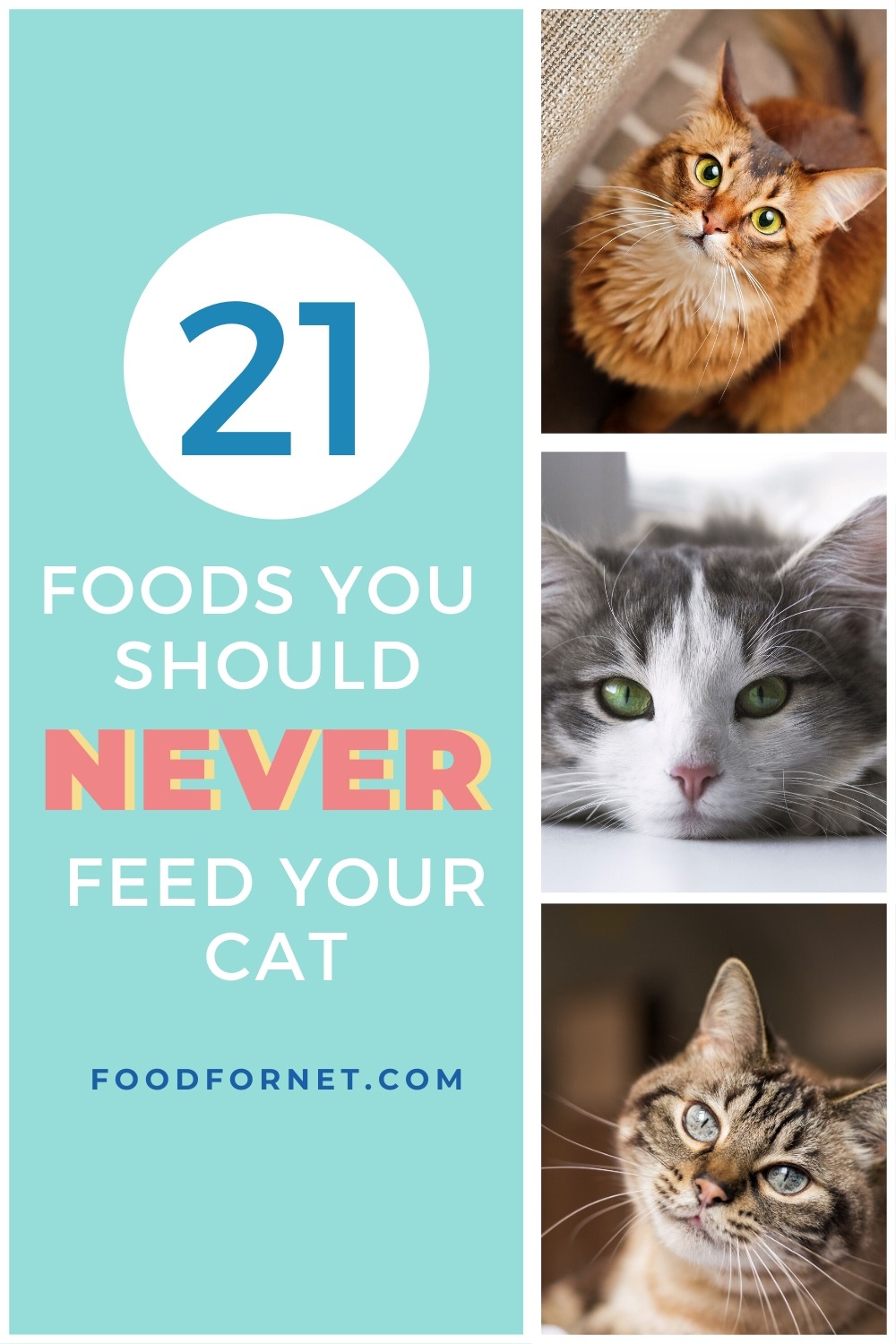
Cats often get fed all sorts of food from around the house, particularly if there are leftovers that nobody wants. At the same time, they do have a habit of getting into food that wasn’t really meant for them. Most of the time, this isn’t a big deal and in small quantities most food won’t cause any lasting harm to your cat.
However, people often overlook the fact that cats have a different metabolism than humans (and other pets). Because of this, some food that is safe for humans may be extremely risky for cats. In some cases, the food you give them could even result in health problems or death. Realistically, most of us need to be paying much more attention to what our cats eat than we actually do.
There are plenty of things on this list that you may think are “normal” for cats to eat, or that you already feed your cat. You may be thinking, “Well, my cat’s OK, so I guess this list isn’t really true!”. Consider that even though your cat looks fine, there may still be some underlying issues you are unaware of, or long term health effects that you won’t see until later.
For most cats, most of the time, standard cat food and treats are going to be the best option for their health.
Milk and Other Dairy Products
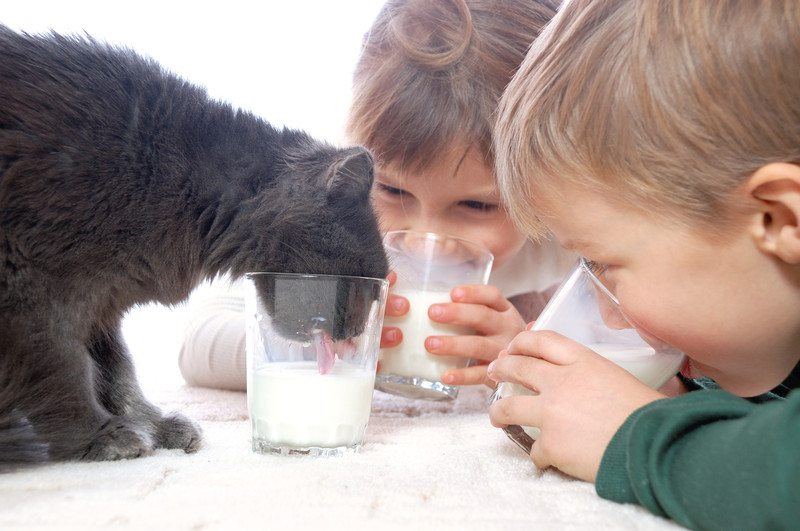
Milk can be a safe product for many cats but some adult cats are lactose intolerant, so any dairy product may cause diarrhea.
That issue isn’t particularly fun for the cat and can be horrible for whoever gets stuck with cleanup. Many grocery stores and pet stores do sell milk-like products that are specifically designed for cats, which is a good way around this issue.
Canned Tuna or Other Fish
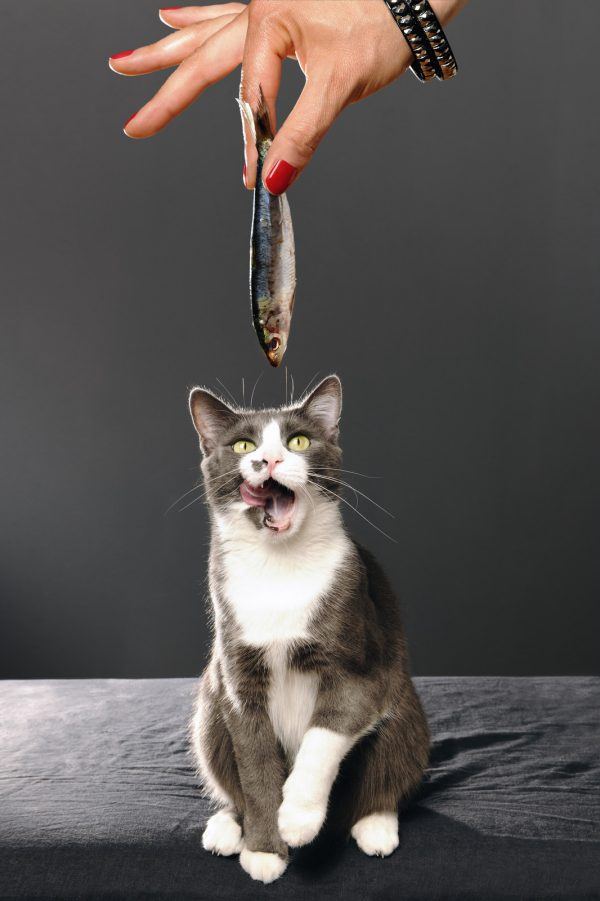
Much like milk, people often view fish as a healthy and fairly typical food to give cats. The biggest problem is that fish isn’t a balanced food for cats and it doesn’t have the vitamins and minerals that cats need.
If cats are fed fish exclusively or very frequently, it can lead to the development of nutrient deficiencies. One such deficiency is thiamine deficiency, which can contribute to seizures, loss of appetite and even death in some cases. Likewise, some fish (especially tuna) can cause mercury poisoning if consumed in high amounts. This is true for cats just like it is for humans.
This issue doesn’t mean that you have to avoid feeding your cat fish altogether but it suggests that fish should be a treat rather than a common addition to their diet.
Grapes, Currants and Raisins
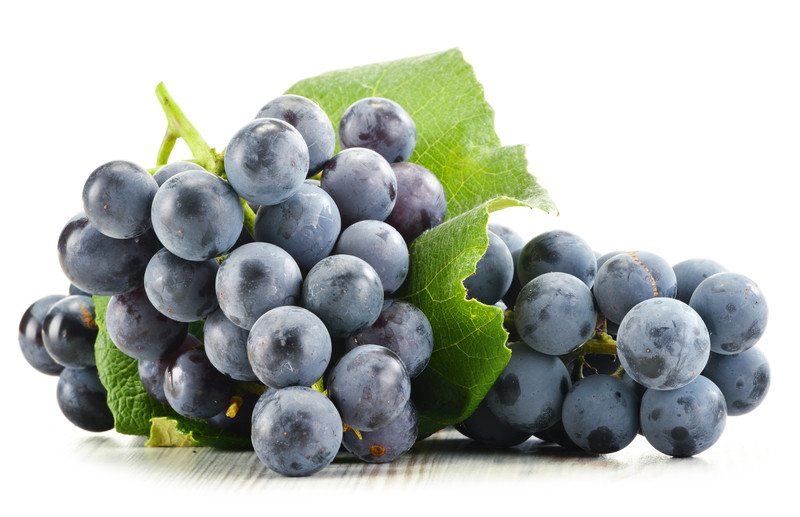
This might seem like a strange one but there is a toxin present in the skin of grapes and currants that can cause kidney damage in cats. Realistically, there is no good reason why you should be feeding your cat these fruit in the first place.
Dog Food
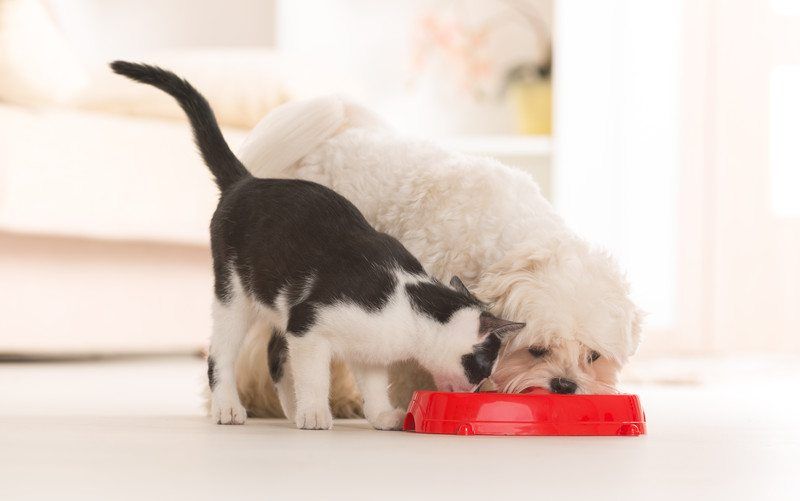
Dog food is another product that isn’t harmful in itself but long-term consumption can cause health issues. This happens because cats and dogs have different dietary needs and dog food is specifically formulated to meet the nutritional needs of dogs.
Because of this, cats don’t get all the nutrients they need from dog food. In some cases, this can contribute to the development of diseases that impact the heart.
Baby Food
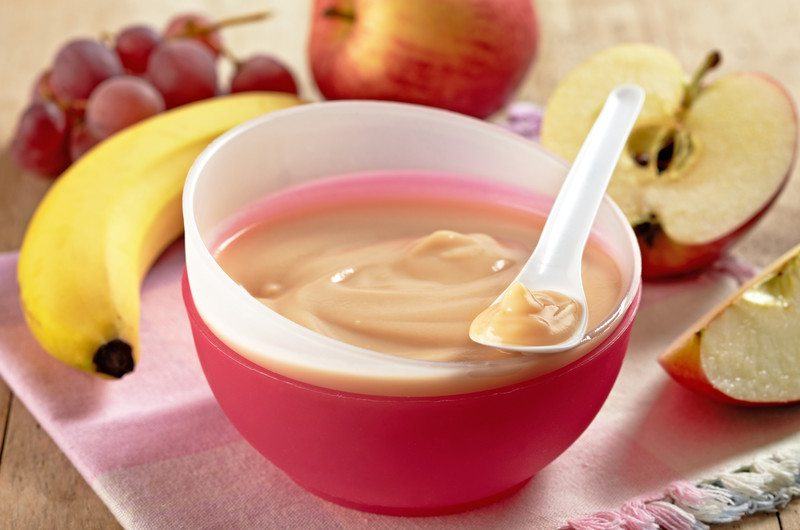
Like dog food, baby food is sometimes used as an alternative to cat food. It also has the ability to contribute to nutritional deficiencies and disease development because it is not formulated for the needs of cats.
Additionally, baby food often contains onion powder. This can be toxic to cats if they eat the baby food for a significant period of time.
Marijuana
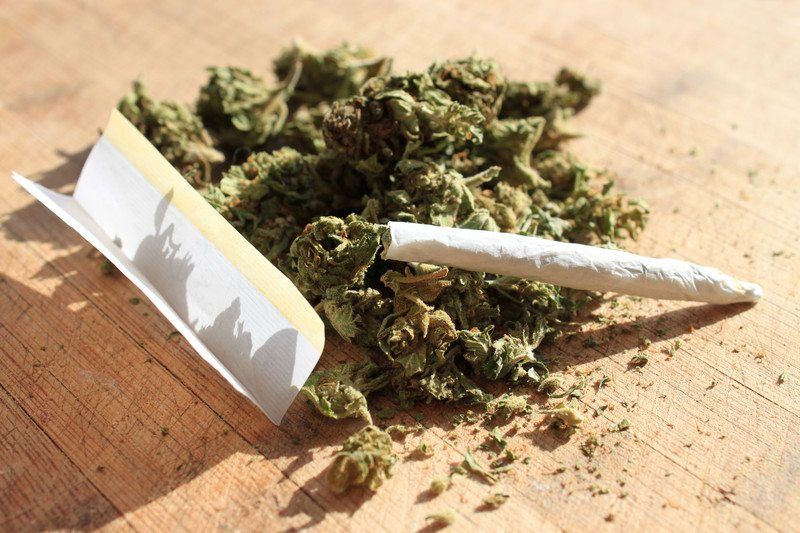
I’ve heard of people giving cats marijuana to see what happens but, in general, giving cats any type of drug is going to be a bad idea. In this case, marijuana can slow down the nervous system of the cat, affect the heart rate and also cause vomiting.
Chocolate
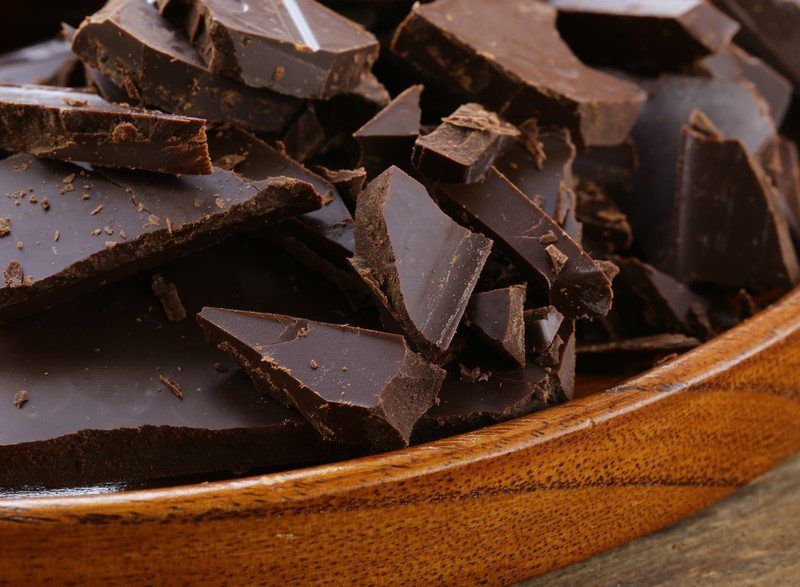
Chocolate is a particularly significant issue for dogs but it is still a problem for cats as well. The problem with chocolate is a compound called theobromine, which is even present in white chocolate. For cats, chocolate can lead to tremors and seizures, as well as death.
Now, the one good thing is that cats will not choose to eat chocolate on their own. However, they will sometimes be coaxed to eat it by their owners, who may not realize the dangers associated with chocolate.
Mushrooms
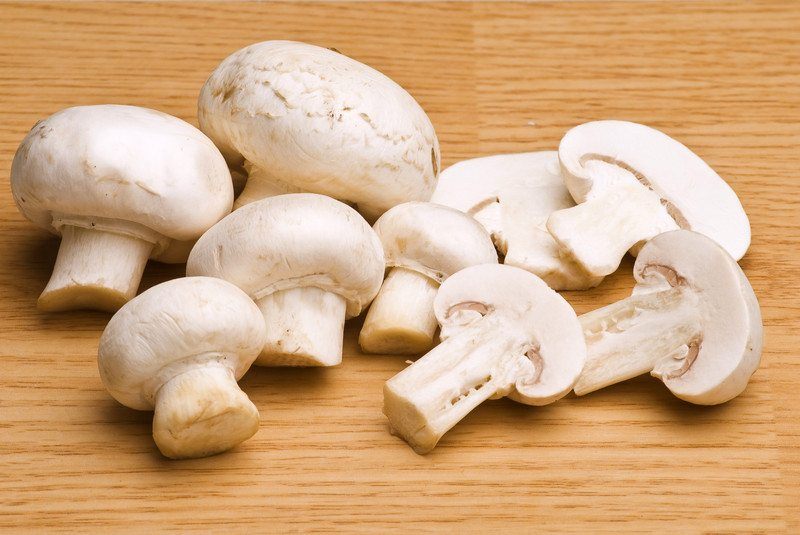
Mushrooms are another ingredient that should be avoided because they contain compounds that are toxic to cats.
These toxins can affect multiple different systems in the body and even result in death. Now, you might not intentionally feed your cat mushrooms but many human meals do use mushrooms as an ingredient, so you need to watch out for these.
Raw Meat
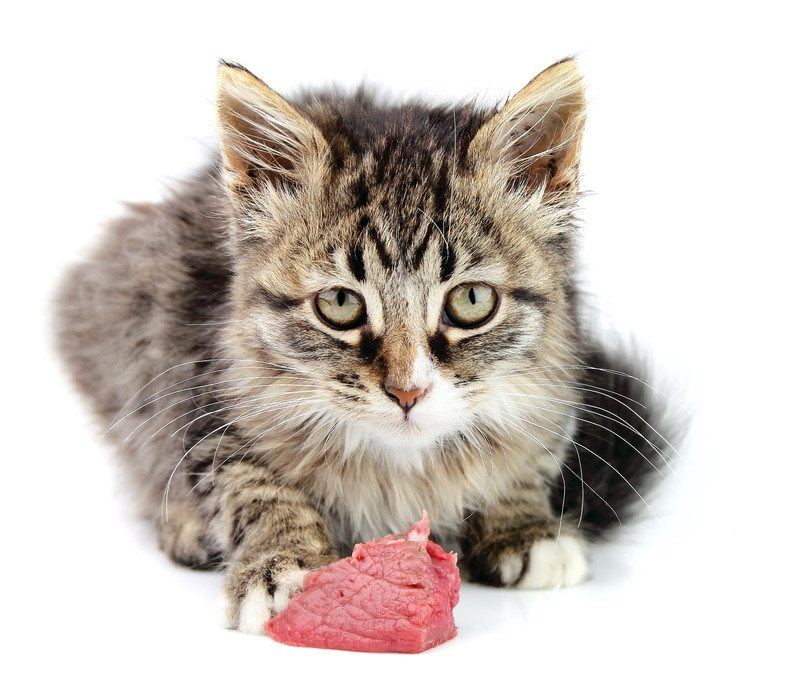
The ancestors of cats may have been hunters but that doesn’t mean that raw meat is safe for cats. Raw meat can contain a range of bacteria, including E. coli and Salmonella that can make cats sick and lead to both diarrhea and vomiting – much like the impacts that raw meat can have on humans.
Raw Eggs
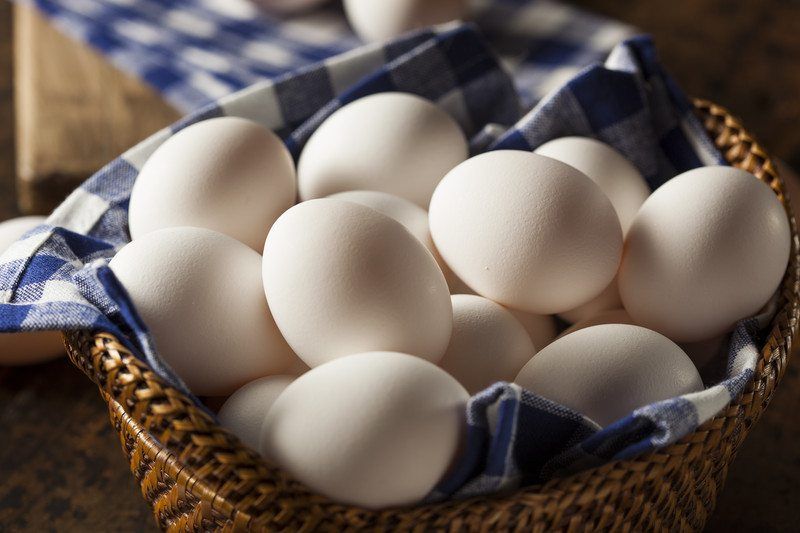
Like raw meat, raw eggs can also contain Salmonella, which is certainly not healthy for cats.
At the same time, raw eggs contain an enzyme called avidin. This enzyme decreases the amount of biotin that cells absorb. This issue can have then contribute ot the development of coat and skin problems in cats.
Any Form of Onion or Garlic
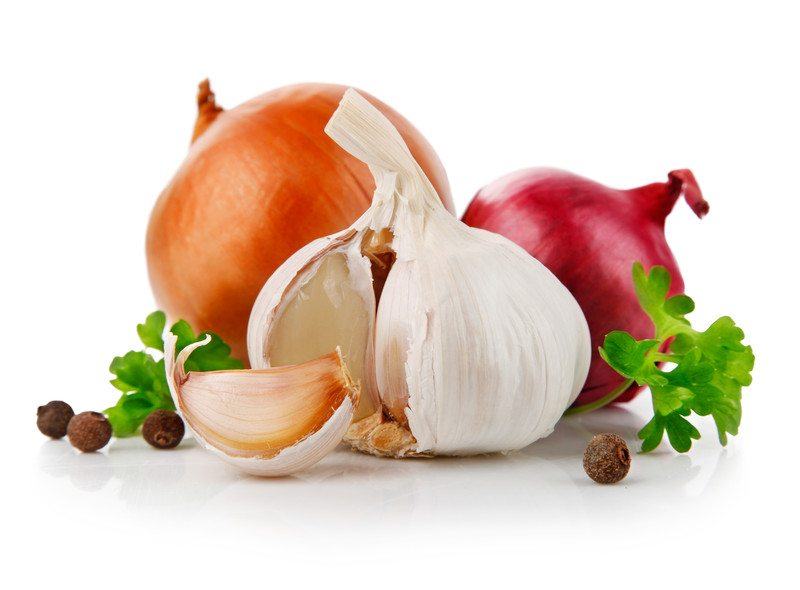
Both onions and garlic contain compounds known as disulfides and sulfoxides. While these may not be a significant issue for humans, in cats they have the ability to cause damage to red blood cells and contribute to anemia.
Of the two, onions are worse than garlic but realistically you should avoid letting cats eat either of them. At the same time, onions and garlic (and also chives) can cause stomach upset in cats.
String
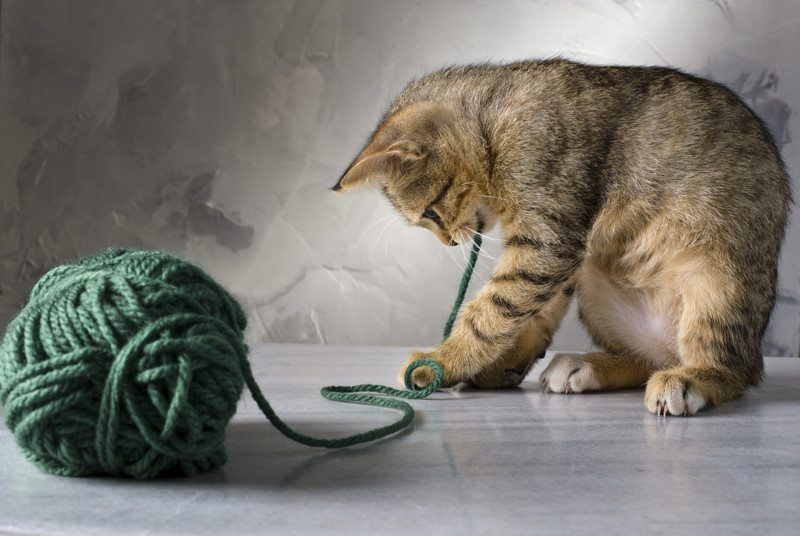
Okay, string isn’t really a food. But, you wouldn’t know that by looking at the way that cats play with it. All too often I’ve seen cats and kittens eating string (or ribbon). This might seem like a pretty harmless pastime but string can get trapped in the cat’s digestive system, causing health problems down the road.
Processed Foods
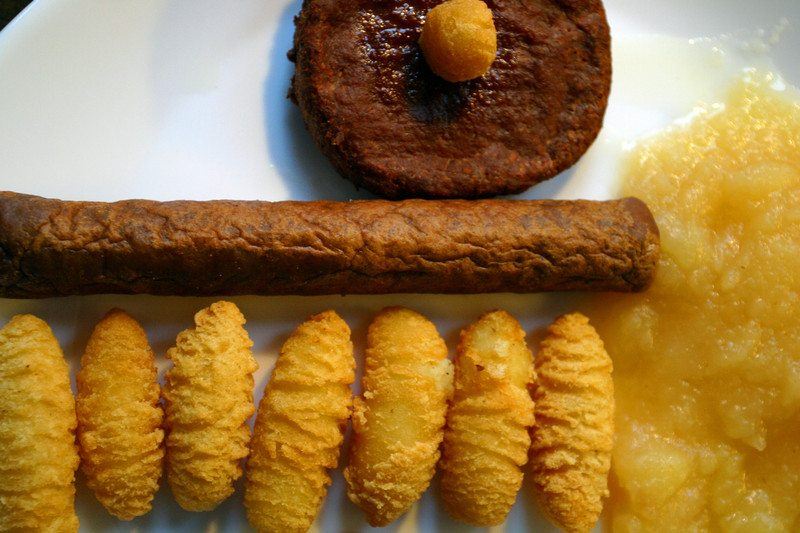
Just like in humans, processed foods are often a bad idea for cats. Often these foods will be high in calories and salt, and some may also be high in sugar. Cats can end obese and can develop dental problems and even diabetes as the result of eating too much sugary food. Salt is also a problem, because excessive salt intake can contribute to electrolyte imbalances.
At the same time, processed food can contain other compounds that are bad for a cat’s health. For example, some candy and gum contains xylitol. This can increase insulin levels in a cat and result in a drop in blood sugar. In turn, that issue can lead to liver failure and seizures.
Leftovers and Table Scraps
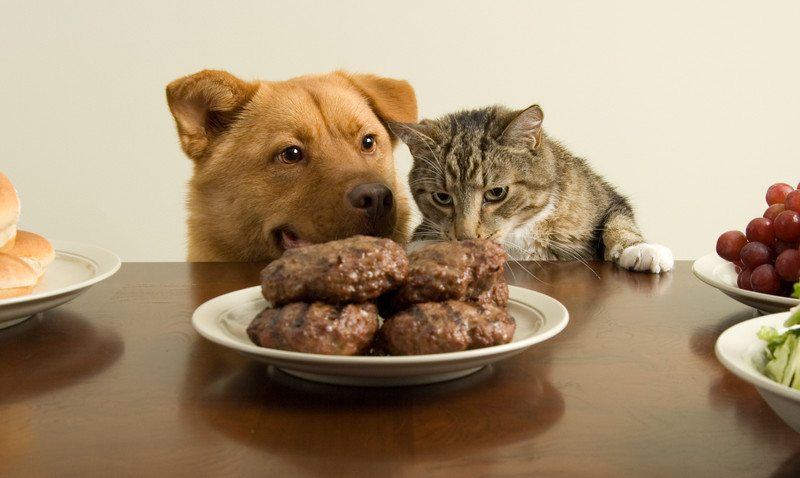
Table scraps and human leftovers can be a problem because they may contain some of the food types in this list. Even if they don’t, human leftovers aren’t going to contain all of the nutrients that a cat needs.
So, they might be safe enough as an occasional food but they should not be part of your cat’s regular diet. At the same time, leftovers from humans can easily contribute to cats becoming overweight or obese because these are often additional calories over and above the normal food that the cat eats.
Liver
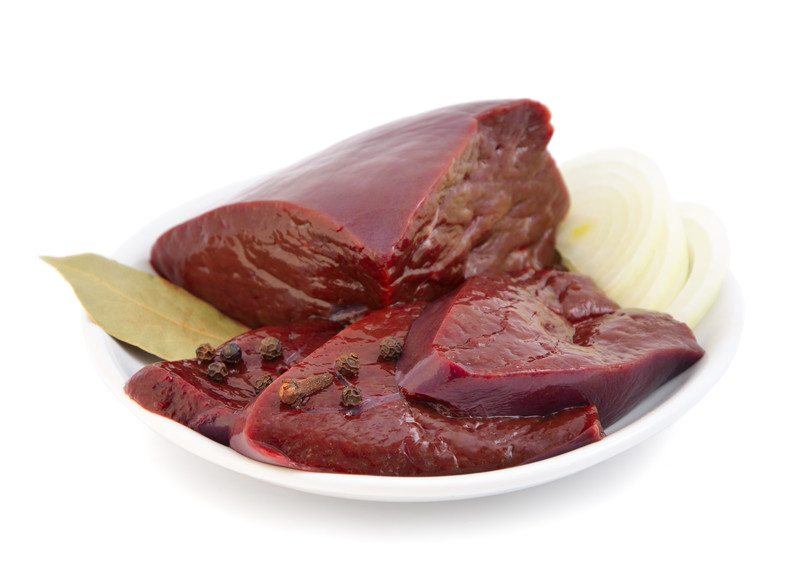
Liver might seem like a treat for cats and in small amounts it can be fine. However, too much liver can lead to vitamin A toxicity. This issue affects the bones of your cat and can contribute to abnormal bone growth and deformed bones. In some cases it can lead to death.
Alcohol or Foods Containing Alcohol
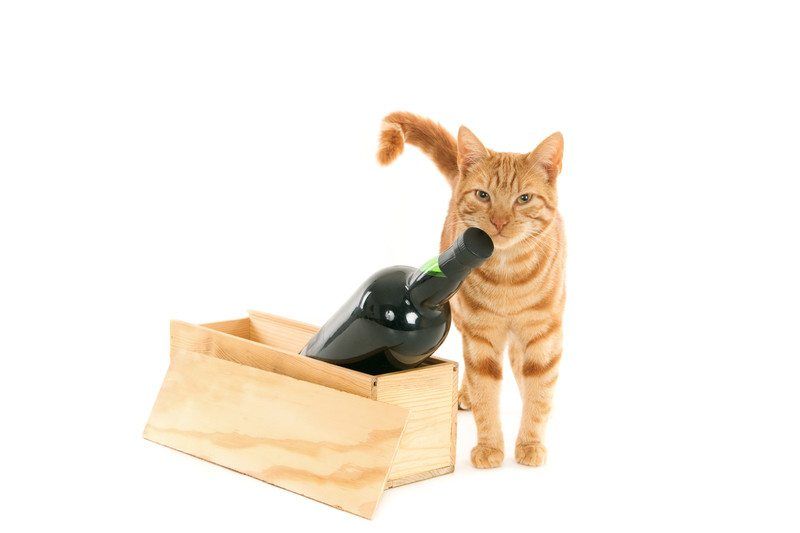
This is another entry that probably should be obvious. Just like in humans, alcohol can have significant impacts on cats, including causing liver damage. However, it takes much less alcohol to cause the same damage.
For example, it would only take around two teaspoons of whisky to put a cat in a coma and it wouldn’t take much more to actually kill the cat. Needless to say, there is no reason for cats to be consuming alcohol at all.
Caffeine
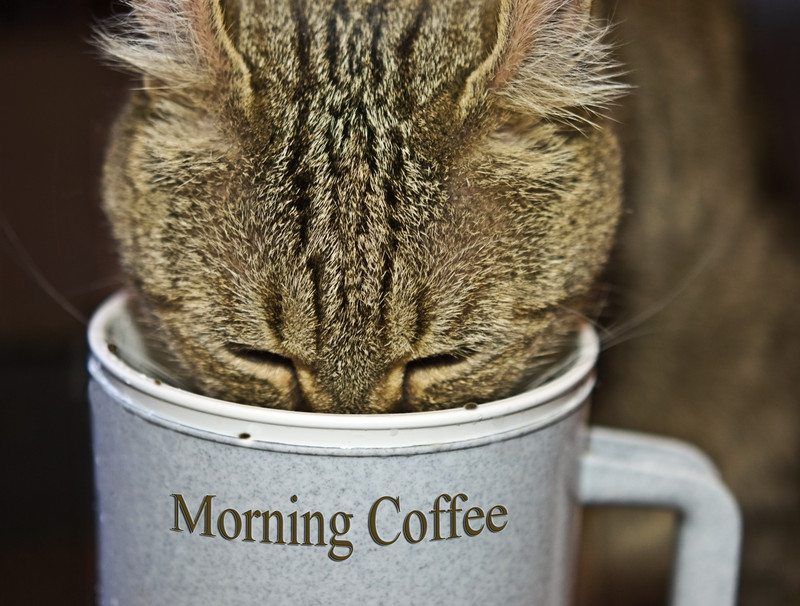
Caffeine is a stimulant and its effect will tend to be much stronger in cats than in humans because of their body size and metabolism. In fact, too much caffeine can kill a cat and there is no way to treat this.
Some of the symptoms of excessive caffeine in cats include restlessness, fast breathing and fits. It’s also important to note that caffeine sometimes turns up in unexpected places, so you do need to keep an eye on anything your cat eats that isn’t specifically designed for cats.
Bones and Fat Trimming
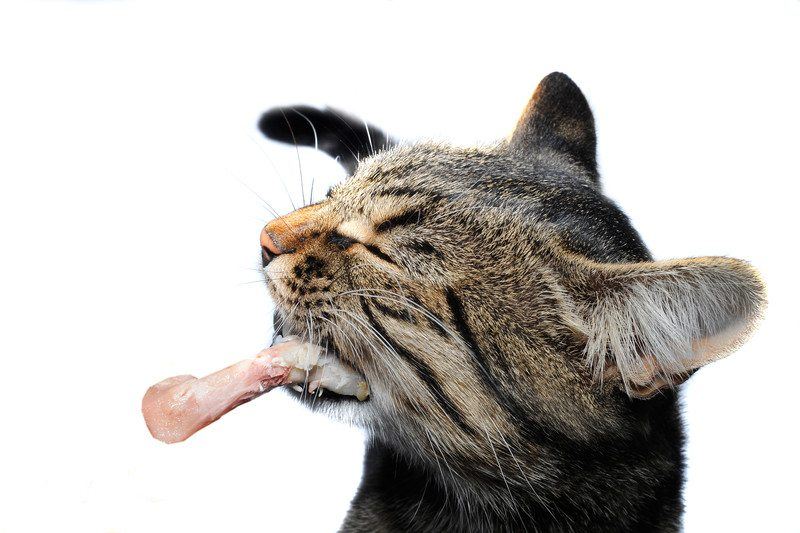
Both of these leftovers can be bad for cats. For one thing, bones can easily splinter. When this happens, it can cause cuts or an obstruction within the cat’s digestive system.
The fat can cause intestinal upset in cats, regardless of whether that fat is cooked or not. In turn, this can lead to diarrhea and vomiting.
Yeast Dough
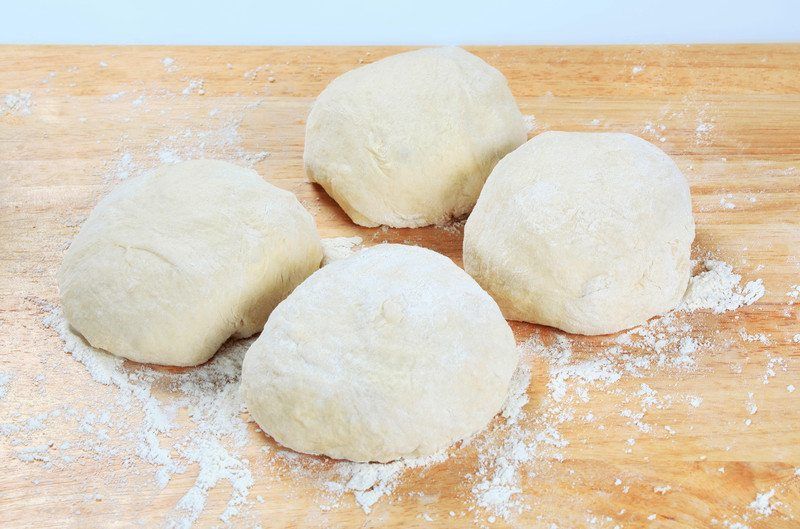
Now, you might not intentionally feed your cat yeast dough but they do have the habit of getting into things that they aren’t meant to. Yeast dough is particularly concerning because the dough will rise while it is the stomach of your cat.
This can cause a lot of pain as it will actually stretch their stomach. At the same time, the process involves fermenting which produces alcohol. That alcohol can then contribute to alcohol poisoning.
Any Human Medicine
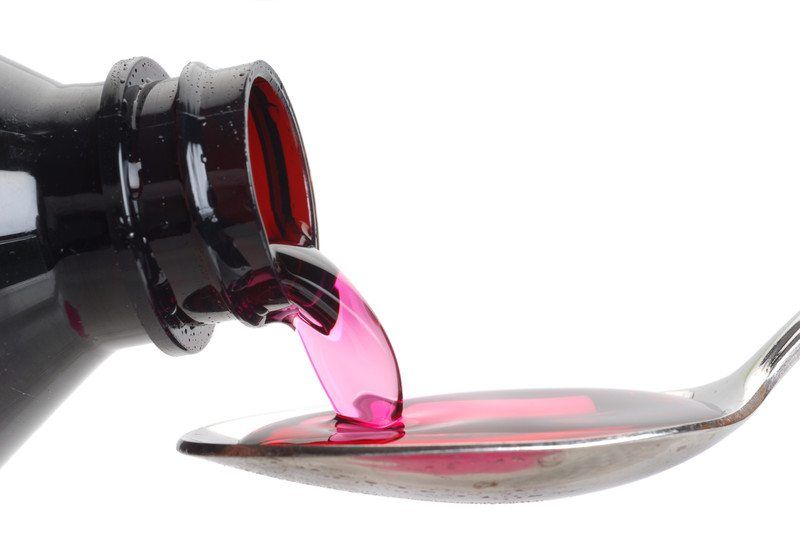
Human medicine is not designed for cats and it can often have unintended side effects. After all, your cat is much smaller than you, so any negative effects of a medication are likely to be much more pronounced.
This means that you should never give a cat human medication, regardless of what their symptoms are. Likewise, it’s important to keep medicines somewhere that a cat cannot access them, just in case.
Avocado
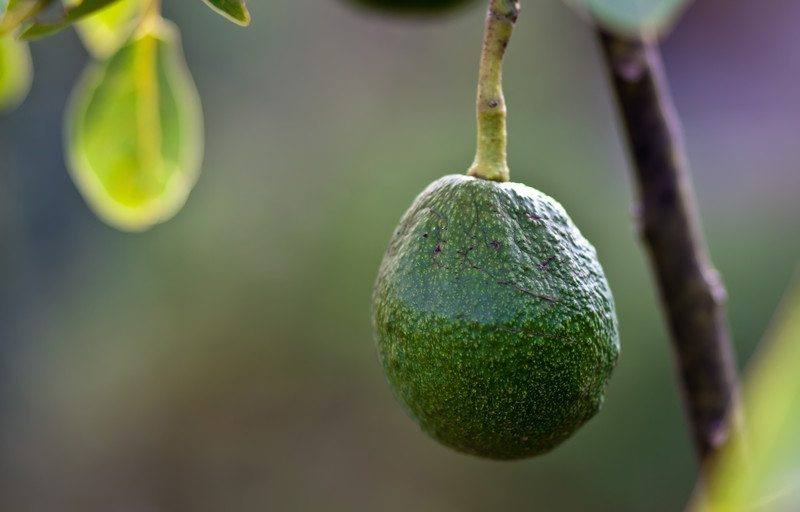
Avocados contain the compound persin, which is toxic to animals. In fact, avocados can be dangerous to cats even if they don’t actually eat the fruit.
So, it’s best not to leave avocados anywhere that a cat can play with them. Issues connected to persin consumption include respiratory problems, fluid buildup around the heart and gastrointestinal issues, depending on how much of the compound that cat consumed.

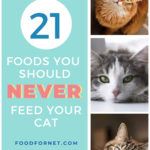

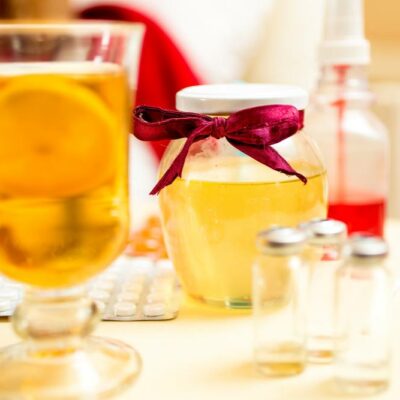







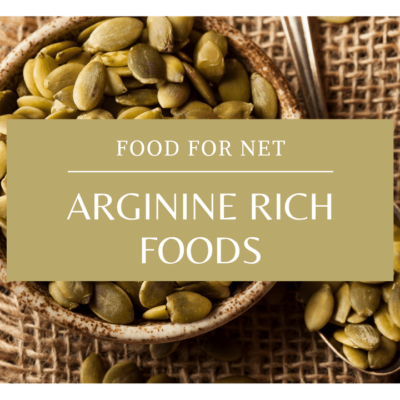
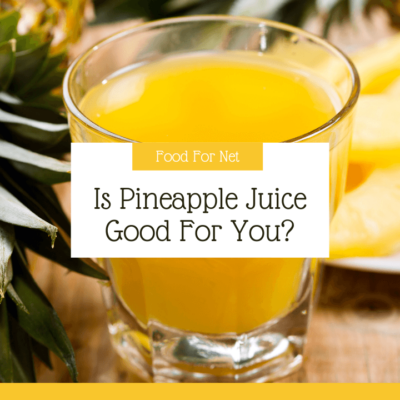
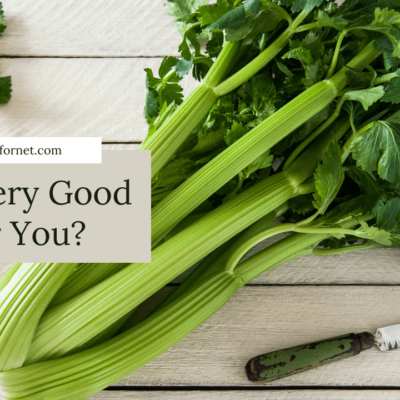
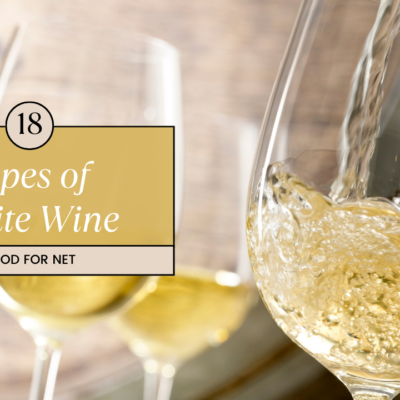

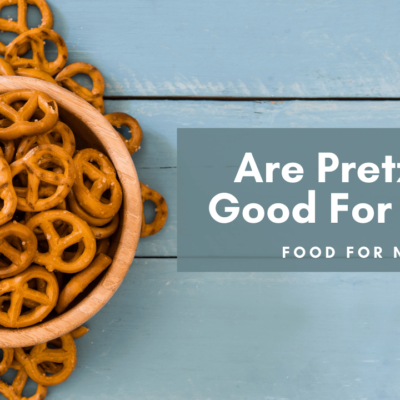

 10 Sous Vide Ham Recipes For Breakfast, Lunch, Or Dinner!
10 Sous Vide Ham Recipes For Breakfast, Lunch, Or Dinner!
Thanks for all the info on what not to feed our cats! One of our cats ate some crocheting yarn and almost died and it cost us $1,700 to have it removed by surgery!! So you are doin a great by your information! Thank you very much!
The natural diet of cats is rodents and birds. In case this isn’t obvious, rodents and birds are made of (raw) meat, bones, and fat. It’s at best ‘weird’ to say that cats shouldn’t eat any of these things, because that’s exactly what they should eat and do eat in the wild.
If you’re going to make fresh cat food yourself, do some research first. Make sure your raw meat is fresh, and make sure you don’t cook the bones first. Uncooked bones don’t splinter at all- they’re rubbery, and much easier for cats to swallow and digest. You should also include some raw egg yoke, but again, only use fresh eggs.
TO JAKE — It’s highly advisable not to feed cats raw meat because of the risk of salmonella and other such problems with contamination. LEARN TO ACTUALLY COMPREHEND WHAT YOU READ. The reason why cats in the wild can just eat raw meat from birds and rats as you say is because they just killed the damn things. Of course the level of possible mishandling in commercial procedures is absent. Think wild cats will eat roadkill birds and rats that have been dead and exposed for days?? No way. They know that’s dirty. They go for live ones and do the hunting and killing themselves to assure freshness and safety. That’s where they can eat raw meat. Now tell everybody here that sources for “fresh” raw meat and “fresh” eggs are abundant everywhere in the world so we can all easily get some! You can’t because it’s false. And of course, you’d just know how to spot salmonella?? Puh-lease.
Zip it and let people avoid raw meat that’s available in supermarkets. Let them freaking cook meat for the cats or get actual cat food. People telling people to avoid giving cats raw meat IS GREAT ADVICE.
Amber, props for taking to time to provide this Info for fellow cat lovers. I feel Jake was simply making a relevant point which should be considered when discussing a cats diet. I am not a fan of people becoming so attached to their ideas that they attack one another for having a different view. Advise civil discussion over angry debates, particularly in the current climate. Let’s all do our bit, thanks again for the info it’s appreciated 🙂
You’re much kinder than I want to be when faced with this type of ridiculous combativeness over disputable “facts”!
Sounds like someone struck a nerve there eh?
High quality raw foods are good for cats.
Cats are meat eaters (taurine….Proteins). It’ll take another however many years for us retarded humans to breed it out of them. We’ll have pocket cats that we can carry in our purses, that’ll never have to use a litter box anymore. But, then they won’t be cats anymore.
The raw foods don’t even have to be that high in quality. For a cat, it just needs to be fresh and clean. Hell!! Just clean. We humans did not evolve eating only the finest foods. We didn’t have a bunch of Bobby Flays cooking our meat properly for us for thousands of years. If you’re worried about something, cook it lightly – rare or medium. Let em try it. But, if you didn’t raise your cat(s) to eat like that, they won’t eat like that. If you raised them from bags and cans, that’s how they’re gonna keep eating. We’re moms and dads to our domestics. Get em young and you can get them used to a real cat style diet. Maybe with a little experimentation, you can get an older cat back to his/her gastrointestinal roots lol…
Hi, Amber.
If your food prep areas are properly cleaned, you handle the food with care, throwing a small, fresh sliver of steak to your cat (if he/she will eat it), isn’t going to hurt it. And a cat, even a “house” cat, can handle a variety of raw eggs, from bird eggs to reptile eggs. It’s great for their coats and immune systems. Ares swears by them! But of course, he’s only given 2 or 3 (over easy chicken eggs) a month.
You’re more likely to cause your cat to get sick if you’re not indulging them, CAREFULLY, at least a couple times a month.
Right on!! Raw meat primarily made of animal organs is species appropriate for cats! It must be done correctly with a supplement of vitamins and minerals which are cat specific if you choose to raw feed. The meat should be prefrozen to help reduce any parasites. Salmonella dangers? Ridiculous. Cats and dogs are made to house trillions of bacteria in their gut which would sicken a person in a heartbeat. Dogs are scavenger carnivores so the more rotten the better. Cats won’t even touch raw food that’s been sitting out for hours. They do need fresh food but so do people. I’ve been feeding my dogs and cats raw with a good daily portion of various organ meats daily and they’ve never gotten salmonella.
If you want longevity and a vibrant healthy pet you should feed raw with the proper guidance of course.
I so totally agree!!! This page is sadly, and tragically misleading. Until we breed out ALL of a “domestic” cat’s wild instincts and biological mechanisms that allow them to survive in our neighbors as strays and feral cats, eating rodents, birds, slugs, worms, their own sick or deformed young, and our trash… Slow your roll. If you bring in a young stray that is friendly, you have a chance to acclimate it to various types of food which supplement our modern “vet formulated” commercial foods which, for the most part, a cat can live on for the rest of it’s life. Cats can suffer olfactory fatigue which may limit what they’re willing to test/eat; much like ferrets who also rely on high protein diets.
A cat can have fresh raw meats, cooked meats (pork, chicken, beef, fish) without harsh spices we humans might like, raw egg yolks (which I prefer to warm a little for my long hair polydactyl fella, and I get the whites!), and tuna and other fish. It just all has to be given in moderation, maybe only once or twice a week. After all, how often does a small domestic cat catch his own tuna? It’s way better than the crap you give them out of a can. So teach them young and indulge them with care.
Agree someone should post how toxic some of the ingredients n canned and dry food r 🤮….GMOs, pesticides, soy flour, soybean oil, wheat, natural flavor, preservatives etc etc …when r cats supposed to eat that CRAP….it’s almost impossible to find healthy store bought cat food these days…it’s almost like the cat food companies r n cahoots w/ veterinarians so cars will need meds and vet visits kinda like the AMA and such r with big pharma
This is very educational and I always tell my guest ” don’t feed the cat or dog under the table because I have them on a strict diet…. Plus it also teaches them ( cat and dog) we are not suppose to eat with humans haha .. Thank you I learn more everyday from you, bless
Hi, Katt.
I don’t feed my cats from the table because my food usually has seasonings and spices that may make them ill. The same goes when I’m having dinner at mom’s and her dogs are waiting for a handout.
Sometimes, though, when I have a left chicken breast or pork chop, I’ll rinse it very thoroughly and allow my cats to try it. If they don’t like it, they don’t like it. Mom’s dogs don’t care so much about seasonings, but I still rinse seasoned leftovers for them as well.
my cay ate some fish off my plate last night that was covered in spices and vinegar. afterwards she went quiet. turned down her treat that was offered hours later and never ate a nibble all night. Or today so far and it is 245pm already. she is just sleeping. she did go pee about 10am but no food or water since last night. Should I be worried?
Had a nice T-bone and lobster last night with my lovely bride. Thought I would be a nice guy and put a couple of slivers out for Finn (daughters cat), he just sniffed it and walked away. Should I seek therapy for him?
yes, I would